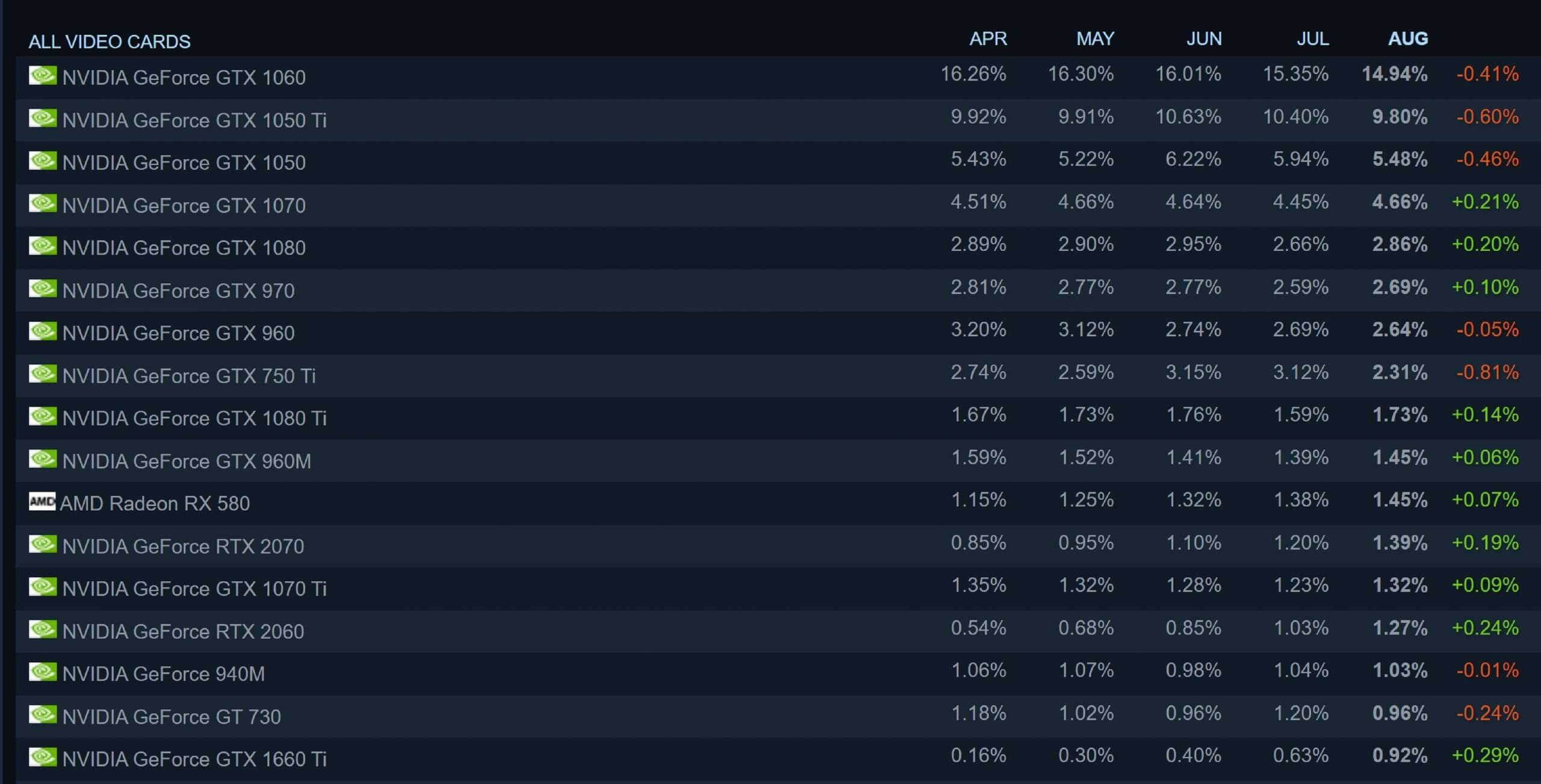Love seeing AMD dominate with vulkan support.
Every other driver we get new extensions added.
18.10.1 WHQL
Added Vulkan™ Extension Support
VK_KHR_shader_atomic_int64
This extension advertises the SPIR-V Int64Atomics capability for Vulkan, which allows a shader to contain 64-bit atomic operations on signed and unsigned integers.
VK_KHR_driver_properties
This extension provides a new physical device query which allows retrieving information about the driver implementation, allowing applications to determine
which physical device corresponds to which particular vendor’s driver, and which conformance test suite version the driver implementation is compliant with.
SPV_GOOGLE_decorate_string
This extension provides two new instructions to decorate a variable or a struct member with a string.
SPV_GOOGLE_hlsl_functionality1
This extension provides two new decorations to extend HLSL functionality: HlslCounterBuffer and HlslSemantic.
18.11.2 Driver
Added Vulkan™ Extension Support
VK_AMD_memory_overalloation_behavior
This extension allows controlling whether explicit overallocation beyond the device memory heap sizes is allowed or not.
18.12.2 Driver
Added Vulkan Support
VK_EXT_inline_uniform_block
This extension introduces the ability to back uniform blocks directly with descriptor sets by storing inline uniform data within descriptor pool storage.
VK_KHR_swapchain_mutable_format
This extension enables processing of swapchain images as different formats to that used by the window system, which is particularly useful for switching between sRGB and linear RGB formats.
VK_EXT_scalar_block_layout
This extension enables C-like structure layout for uniform and storage buffers, allowing non-scalar types to be aligned solely based on the size of their components.
Sparse Support is Enabled
Sparse support relaxes the requirement to have memory allocated and bound to resources prior to being used. It also relaxes the requirement for the bound memory to be contiguous and for the memory bindings to be immutable.
19.6.2 Driver
VK_EXT_host_query_reset
Allows resets of queries from the host, rather than on the GPU.
VK_EXT_full_screen_exclusive
Gives applications explicit control over exclusive full-screen modes (this is for instance useful for HDR support).
VK_AMD_display_native_hdr
Exposes FreeSync2 capabilities for improved HDR support.
VK_EXT_separate_stencil_usage
Separates the usage flags for depth/stencil aspects of a depth/stencil image making it possible to restrict/expand the usage relative to the depth aspect.
VK_KHR_uniform_buffer_standard_layout
Provides more flexible alignment for uniform buffers, enabling among other things, the usage of std430 layouts in Vulkan.
19.7.3
VK_EXT_display_surface_counter
This extension defines a vertical blanking period counter associated with display surfaces. It provides a mechanism to query support for such a counter from a VkSurfaceKHR object
VK_AMD_pipeline_compiler_control
This extension provides a way to set per-pipeline compiler options, for instance, to relax rounding rules when working with mixed-precision floating point values.
VK_AMD_shader_core_properties2
This extension exposes additional, AMD specific shader core properties for a physical device
VK_EXT_subgroup_size_control
This extension provides additional control over subgroup size, allowing applications for instance to opt-in to different subgroup sizes on devices supporting more than just one.
VK_KHR_imageless_framebuffer
This extension allows framebuffers to be created without the need for creating images first, allowing more flexibility in how they are used, and avoiding the need for many of the compatibility rules.
VK_KHR_variable_pointers
This extension allows implementations to indicate their level of support for the SPV_KHR_variable_pointers SPIR-V extension. The SPIR-V extension allows shader modules to use invocation-private
pointers into uniform and/or storage buffers, where the pointer values can be dynamic and non-uniform. This release adds the optional VariablePointers support.
19.9.1
VK_AMD_device_coherent_memory
This extension adds device coherent and device uncached memory types. Device coherent and uncached memory
are expected to have lower performance for general access than non-device coherent memory but can be useful in
certain scenarios particularly so for debugging.
VK_EXT_calibrated_timestamps This extension provides an interface to query calibrated timestamps obtained quasi
simultaneously from two time domains such as host and device time domains.
VK_EXT_line_rasterization - This extension adds some line rasterization features that are commonly used in CAD
applications and that are supported in other APIs like OpenGL. These features include Bresenham-style line rasterization,
smooth rectangular lines (coverage to alpha) and stippled lines for all three line rasterization modes.
VK_EXT_shader_demote_to_helper_invocation - This extension adds Vulkan support for the SPV_EXT_demote_to_helper_invocation SPIR-V extension.
The SPIR-V extension provides a new instruction that allows shaders to "demote" a fragment shader invocation to behave like a helper invocation for its duration.
The demoted invocation will have no further side effects and will not output to the framebuffer but remains active and can
participate in computing derivatives and in subgroup operations. This is a better match for the "discard" instruction in HLSL.


